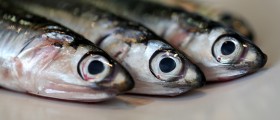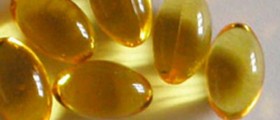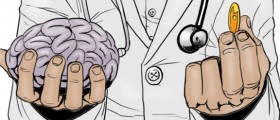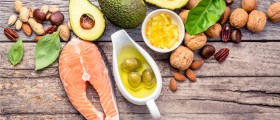
Everybody knows that we should all eat healthier, exercise more, lose weight, quit smoking, reduce alcohol intake, take medications properly but the most of the people simply resist change. Breaking the unhealthy habits is a though task. This article is to enhance awareness about necessity for change and provide simple tips for better and healthier living.
Breakfast
Breakfast is the most important meal. It provides brain with sufficient energy to start and carry out daily tasks. Studies show that people who regularly have breakfast, on average take more vitamins and minerals than fats and cholesterol. Breakfast also prevents food craving and feeling of hunger during the day. Prefect breakfast should contain carbohydrates, proteins and a small amount of fat. Cereals may be an excellent choice.
Fish and Omega-3 Fatty Acids
These foods are rich in proteins and relatively low in bad type of fats. Omega-3 fatty acids are good in prevention of coronary diseases. Moreover, they may also calm an overactive immune system and thus reduce allergies, asthma, eczema and other autoimmune disorders.
Sleep
An average person needs eight hours of night sleep. However, studies show that more than two-thirds of adults suffer from some kind of a sleep disorder and many of them do not even get the minimum amount of rest. Sleep is vital to good wellbeing and good mental health. People who do not get enough sleep are more likely to develop psychiatric problems. An adult person should have seven to ten hours of sleep, while children need even more rest. In addition, drowsy driving each year causes more than 100.000 car accidents and approximately 1.500 deaths.
Socialization
Communal activities are beneficial for physical and mental health. Joining a club, going to church, volunteering are all great means to improve mental functioning. Social ties are great ways to find information, get help or emotional support and experience a sense of belonging. They may significantly help one to overcome depression and anxiety.Exercise
Even the lightest exercise may help to increase the movement rate, helps control weight, enhance metabolism, reduce risk of developing high blood pressure, diabetes or heart diseases, and keep the joints flexible. Good Oral Hygiene
Flossing and brushing the teeth every day may help prevent heart diseases, stroke and diabetes. Some studies show that bacteria that produce dental plaque enters the bloodstream and causes inflammations and blockage in blood vessels.
Hobby
Relaxing activities such as craftwork, bird watching, sports, going to flea markets, walking in the park, or playing cards, may influence healthier life and better recovering from illness. In other words, hobbies promote active orientation to life.
Skin protection
Harmful ultraviolet rays cause wrinkles, dryness and spots. Overexposure can root sunburn, skin texture changes, dilated blood vessels, and skin cancers. It is recommended to wear sunscreen with SPF 15 or higher, hat and protective clothing and avoid sunbathing.
Healthy snacks
Healthy diet should include at least five servings of fruits and vegetables per day. Fruits and vegetables may be consumed as snacks between meals, because they are low in calories and high in nutrients. Water and Milk
An average person should take eight ounces of water a day, for every 25 pounds of body weight. Body needs water to lubricate the joints and vital organs need it to work in a proper way. Calcium found in milk is important for bones and teeth and it may prevent hypertension, kidney stones, heart disease and colon cancer. Tea
Tea helps improve memory, prevents cavities, cancer and heart disease. It is better to take decaffeinated tea, because it cannot dehydrate the body. It is important to avoid sugar in tea, because sugary drinks can lead to obesity.

















Your thoughts on this
Loading...